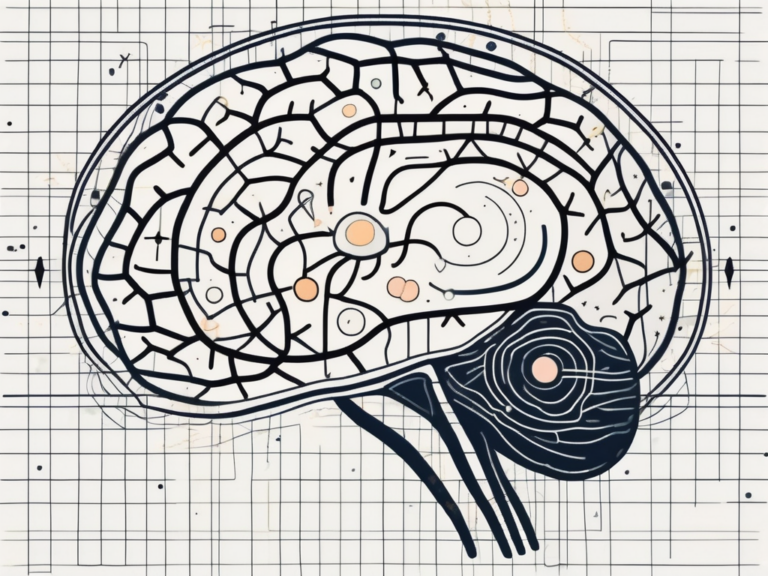Tips on How to Get Better Sleep
In today’s fast-paced world, getting quality sleep has become a rare luxury for many individuals. The demands of work, family, and daily responsibilities often leave us feeling sleep-deprived and groggy. However, the importance of sleep should not be underestimated. Not only does it allow our bodies to rest and recover, but it also plays a crucial role in our overall health and well-being. In this article, we will explore the science behind sleep, the implications of poor sleep on our health, and practical tips to help you establish a consistent sleep schedule.
Understanding the Importance of Quality Sleep
Sleep is a complex phenomenon that involves intricate processes in our body. While we may think of sleep as a passive state, it is actually an active period during which our brain and body undergo essential maintenance and restoration. During sleep, our brain consolidates memory, repairs tissue damage, and regulates vital functions.
Poor sleep, on the other hand, can have detrimental effects on our health. Chronic sleep deprivation has been linked to various health issues, including cardiovascular diseases, obesity, and weakened immune system. It can also impair cognitive function, attention, and decision-making abilities, negatively impacting our productivity and overall quality of life.
The Science Behind Sleep
Understanding the science of sleep can help us appreciate its importance even more. Sleep is regulated by the circadian rhythm, a 24-hour internal clock that influences our sleep-wake cycle. Melatonin, a hormone released by the brain, helps to regulate our sleep patterns. However, factors such as stress, irregular schedules, and exposure to electronic devices can disrupt this natural rhythm.
Additionally, sleep is composed of several stages, alternating between rapid eye movement (REM) sleep and non-REM sleep. Each stage serves a specific purpose, such as helping with memory consolidation and deep physical recovery. Disruptions in these stages can lead to daytime sleepiness and decreased cognitive function.
Health Implications of Poor Sleep
The consequences of consistently poor sleep extend beyond feeling drowsy and unfocused. Research has shown that inadequate sleep can increase the risk of developing chronic health conditions, such as diabetes, heart disease, and obesity. It can also weaken the immune system, making us more susceptible to infections and illnesses.
Poor sleep has also been linked to mental health issues, including depression and anxiety. Sleep problems can exacerbate existing mental health conditions and contribute to the development of new ones. It is crucial to prioritize sleep as part of our overall well-being.
Furthermore, the impact of sleep on our physical appearance should not be underestimated. Lack of quality sleep can lead to the development of dark circles under the eyes, dull and dehydrated skin, and premature aging. This is because during sleep, our body produces collagen, a protein that helps maintain the elasticity and firmness of our skin. Without enough sleep, the production of collagen is disrupted, resulting in sagging and wrinkled skin.
In addition to its effects on our physical health, sleep plays a vital role in our mental and emotional well-being. Adequate sleep is essential for regulating our emotions and managing stress. When we are sleep-deprived, our ability to cope with daily challenges is compromised, leading to increased irritability, mood swings, and difficulty in regulating our emotions. It can also impair our ability to concentrate and make sound decisions, affecting our relationships and overall quality of life.
Establishing a Consistent Sleep Schedule
A regular sleep schedule is essential for achieving restorative sleep and maintaining optimal health. By aligning our sleep-wake cycle with our body’s natural rhythm, we can promote quality sleep and improve our overall well-being.
The Role of Circadian Rhythm
The circadian rhythm, often referred to as our body clock, plays a central role in regulating our sleep patterns. It is influenced by external cues, such as daylight and darkness, and helps determine when we feel sleepy and when we feel awake. To establish a consistent sleep schedule, it is crucial to sync our sleep-wake cycle with our circadian rhythm.
Our circadian rhythm is controlled by a part of the brain called the suprachiasmatic nucleus (SCN), which receives information about light exposure from the eyes. When exposed to light, especially natural sunlight, the SCN sends signals to other parts of the brain to release hormones like cortisol, which helps us stay awake and alert during the day. As the day progresses and darkness sets in, the SCN triggers the release of melatonin, a hormone that promotes sleepiness.
One way to do this is by maintaining a regular wake-up time and bedtime, even on weekends. This helps to regulate our internal clock and promotes a better sleep routine. Over time, our body will become accustomed to the schedule, making it easier to fall asleep and wake up at the desired times.
Tips for Maintaining a Regular Sleep-Wake Cycle
In addition to setting a consistent sleep schedule, there are several practical tips that can help us maintain healthy sleep patterns. Creating a relaxing bedtime routine can signal to our body that it’s time to wind down and prepare for sleep. This can include activities such as reading a book, taking a warm bath, or practicing relaxation techniques like deep breathing or meditation.
Another important aspect of maintaining a regular sleep-wake cycle is managing our exposure to light, especially in the evening. The blue light emitted by electronic devices like smartphones and tablets can interfere with the production of melatonin, making it harder to fall asleep. To minimize this effect, it is recommended to limit screen time before bed and consider using blue light filters or wearing blue light-blocking glasses.
It is also important to create a sleep-conducive environment. Designate your bedroom as a peaceful and comfortable space, free from distractions and electronics. Ensure your mattress and pillow provide adequate support and comfort, as an uncomfortable sleep surface can lead to disrupted sleep. Additionally, keeping the room cool, dark, and quiet can further enhance the quality of your sleep.
Creating a Sleep-Inducing Environment
Importance of a Comfortable Mattress and Pillow
Investing in a high-quality mattress and pillow is crucial for promoting a good night’s sleep. An uncomfortable sleep surface can lead to aches, pains, and restless nights. But what exactly makes a mattress and pillow comfortable?
When it comes to mattresses, it’s all about finding the right level of support for your body. Whether you prefer a firm mattress that keeps your spine aligned or a plush one that cradles your body, the key is to choose a mattress that suits your individual needs. Additionally, consider factors such as motion isolation, edge support, and breathability to enhance your sleeping experience.
Similarly, pillows play a vital role in ensuring a comfortable sleep. The ideal pillow should provide adequate support for your neck and head, aligning them with your spine. Whether you prefer a memory foam pillow that contours to your shape or a down pillow that offers a plush feel, finding the right pillow can make a world of difference in your sleep quality.
Remember, mattresses and pillows don’t last forever. Over time, they can lose their shape and support, leading to discomfort. It is recommended to replace your mattress every 7-10 years and your pillow every 1-2 years to maintain optimal comfort and sleep hygiene.
The Effect of Light and Temperature on Sleep
Light and temperature play significant roles in regulating our sleep quality. We all know that exposure to bright light can make it harder to fall asleep, but did you know that it’s the blue light emitted by electronic devices that has the most detrimental effect?
Blue light suppresses the production of melatonin, a hormone that helps regulate our sleep-wake cycle. So, if you find yourself scrolling through your phone or watching TV late at night, you may be unknowingly disrupting your sleep. To promote better sleep, it’s important to limit exposure to electronic screens close to bedtime. Consider implementing a “digital curfew” and engage in relaxing activities, such as reading a book or taking a warm bath, to prepare your mind and body for sleep.
In addition to light, temperature also plays a crucial role in our sleep. Have you ever noticed how difficult it is to fall asleep when you’re too hot or too cold? Finding the right temperature for your bedroom can greatly enhance your sleep quality. Research suggests that a cool room, around 18-20 degrees Celsius (64-68 degrees Fahrenheit), is generally optimal for most individuals. However, everyone is different, so it’s important to experiment with different temperatures and bedding to find the most comfortable sleep environment for you.
Creating a sleep-inducing environment involves paying attention to the finer details. By investing in a comfortable mattress and pillow, limiting exposure to electronic screens, and finding the perfect temperature for your bedroom, you can create an environment that promotes deep and restful sleep.
Nutrition and Its Impact on Sleep
Foods That Promote Sleep
What we eat can significantly impact our sleep quality. Certain foods contain nutrients and compounds that promote relaxation and help regulate sleep. Incorporating food sources rich in tryptophan, magnesium, and vitamins B6 and C can have a positive effect on sleep.
Foods such as turkey, nuts, seeds, and leafy greens are rich in tryptophan, an amino acid precursor to serotonin, which aids in sleep regulation. Tryptophan is converted into serotonin, a neurotransmitter that helps regulate sleep-wake cycles and promotes a sense of calmness and well-being. By including these foods in our diet, we can enhance our body’s natural ability to fall asleep and stay asleep throughout the night.
Magnesium-rich foods like bananas, almonds, and dark chocolate can help relax muscles and promote a sense of calmness. Magnesium is a mineral that plays a crucial role in the body’s ability to regulate sleep. It helps activate the parasympathetic nervous system, which is responsible for promoting relaxation and preparing the body for sleep. By incorporating these foods into our evening routine, we can create a soothing environment for a restful night’s sleep.
Additionally, consuming foods high in vitamins B6 and C, such as citrus fruits, bell peppers, and whole grains, can support the production of sleep-inducing hormones. Vitamin B6 is involved in the production of serotonin and melatonin, both of which are essential for regulating sleep. Vitamin C, on the other hand, helps reduce the levels of stress hormones in the body, allowing for a more relaxed state conducive to sleep. By including these nutrient-rich foods in our diet, we can optimize our sleep quality and wake up feeling refreshed and rejuvenated.
Drinks That Can Disturb Your Sleep
While certain foods can promote sleep, there are also drinks that can disrupt our sleep patterns. Caffeine and alcohol, in particular, can negatively affect our sleep quality.
Caffeine, found in coffee, tea, energy drinks, and chocolate, is a stimulant that can interfere with falling asleep and disrupt the overall sleep cycle. It stimulates the central nervous system, increasing alertness and delaying the onset of sleep. It is advisable to limit the consumption of caffeine, especially in the late afternoon and evening, to ensure a smoother transition into a restful night’s sleep.
Alcohol, although initially sedating, can ultimately disrupt the sleep cycle and reduce the quality of sleep. While a nightcap may seem relaxing, it can lead to fragmented sleep and increased awakenings during the night. Alcohol affects the production of adenosine, a chemical that promotes sleep, leading to a less restorative sleep experience. Moderation is key, and it is best to avoid alcohol close to bedtime for a restful night’s sleep.
Understanding the impact of nutrition on sleep can help us make informed choices about our diet and lifestyle. By incorporating sleep-promoting foods and avoiding sleep-disrupting drinks, we can create an environment that supports healthy sleep patterns and overall well-being.
The Role of Physical Activity in Promoting Sleep
Best Time to Exercise for Optimal Sleep
Regular physical activity has numerous health benefits, including its positive impact on sleep. Engaging in exercise can improve sleep quality, reduce sleep onset latency, and increase the amount of deep sleep experienced.
However, timing is crucial when it comes to exercise and sleep. To optimize sleep, it is recommended to complete your workout a few hours before bedtime. This allows your body temperature and heart rate to return to baseline, signaling to your body that it’s time to wind down and prepare for sleep.
When you exercise, your body releases endorphins, which are natural mood boosters. These endorphins not only enhance your overall well-being but also contribute to a more restful sleep. So, by incorporating physical activity into your daily routine, you not only reap the benefits of a healthier body but also enjoy a more rejuvenating sleep.
Relaxation Techniques for Better Sleep
In addition to exercise, relaxation techniques can help promote better sleep. Practices such as meditation, deep breathing exercises, and yoga can induce a state of calmness and tranquility, making it easier to fall asleep and improve sleep quality. Experiment with different techniques to find the ones that work best for you.
Meditation, for example, involves focusing your attention and eliminating the stream of thoughts that often keep you awake at night. By practicing meditation before bed, you can quiet your mind and create a peaceful mental space that promotes deep and uninterrupted sleep. Similarly, deep breathing exercises can help activate your body’s relaxation response, reducing stress and tension that may interfere with sleep.
Dealing with Sleep Disorders
Common Sleep Disorders and Their Symptoms
Sleep disorders are conditions that significantly disrupt our sleep patterns and can have severe implications for our overall health and well-being. Some common sleep disorders include insomnia, sleep apnea, restless leg syndrome, and narcolepsy. It is essential to recognize the symptoms and seek professional help if necessary.
Insomnia is characterized by difficulty falling asleep or staying asleep, resulting in inadequate sleep quantity or quality. Sleep apnea involves interrupted breathing during sleep and can lead to excessive daytime sleepiness. Restless leg syndrome causes an irresistible urge to move the legs, often accompanied by unpleasant sensations, leading to difficulty falling asleep. Narcolepsy is a neurological disorder that causes excessive daytime sleepiness, sudden sleep attacks, and loss of muscle control.
When to Seek Professional Help for Sleep Issues
If you consistently experience difficulties falling asleep, staying asleep, or wake up feeling tired and unrefreshed, it may be time to seek professional help. A sleep disorder specialist can diagnose and treat underlying sleep disorders and provide appropriate interventions to improve your sleep quality and overall well-being.
Sleep is a precious resource that should be prioritized. By understanding the importance of quality sleep, establishing a consistent sleep schedule, creating a sleep-inducing environment, and implementing healthy lifestyle practices, you can take significant steps towards achieving better sleep. Remember, a good night’s sleep sets the stage for a productive and fulfilling day. Sweet dreams!
It is worth noting that sleep disorders can have a significant impact on our mental health as well. Lack of quality sleep can contribute to increased levels of stress, anxiety, and depression. When we don’t get enough sleep, our cognitive function is impaired, making it difficult to concentrate, make decisions, and perform daily tasks efficiently.
Furthermore, sleep disorders can also affect our physical health. Chronic sleep deprivation has been linked to an increased risk of developing conditions such as obesity, diabetes, cardiovascular disease, and even certain types of cancer. It is crucial to address sleep issues promptly to prevent these potential health complications.






